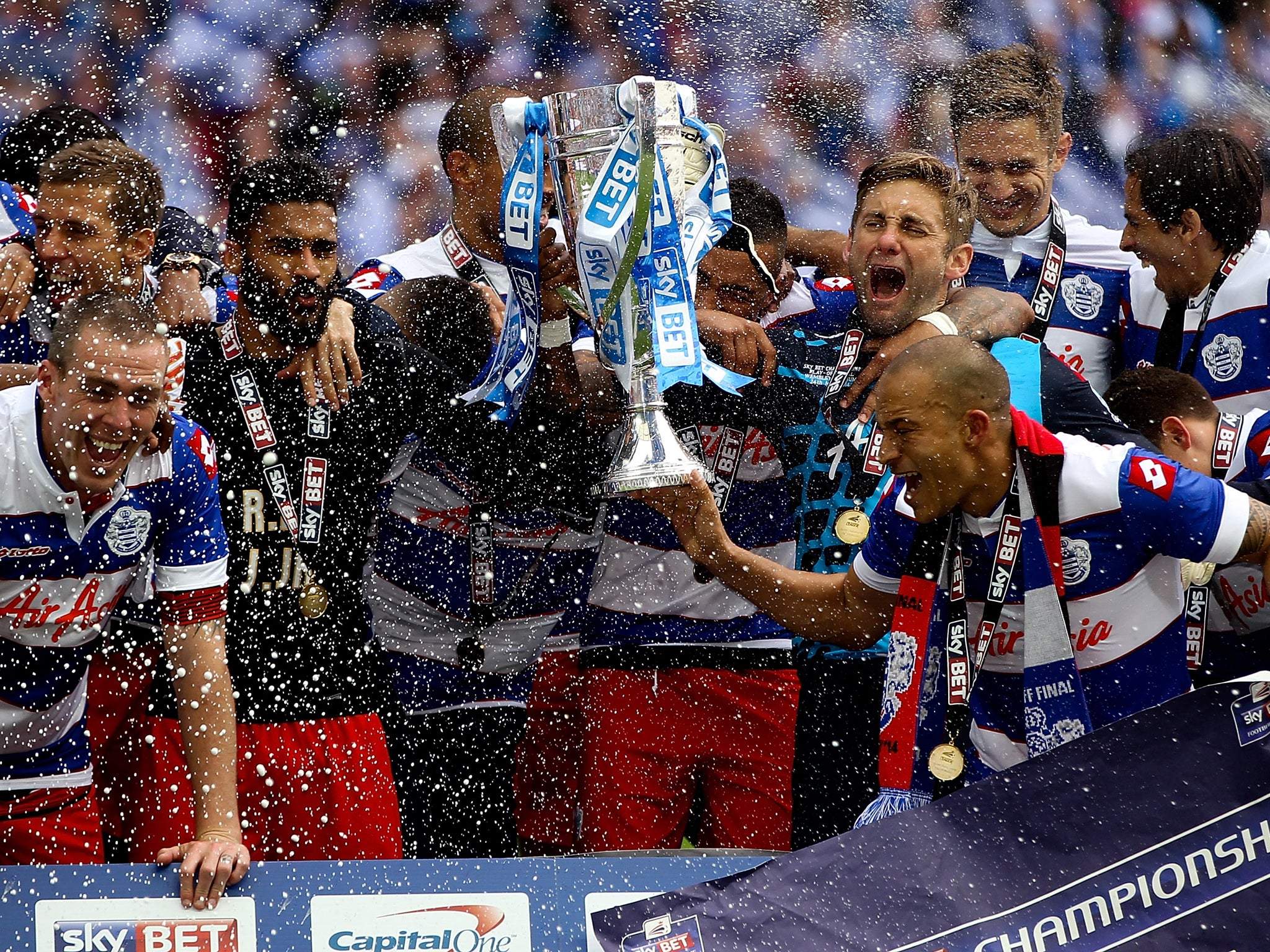Derby 0 QPR 1: Huge debts and substantial fines ahead – now they have a lifeline
The Calvin Report: Football, with its exquisite cruelty and improbable drama, had imposed itself over finance

Nine seconds of normal time remained when Bobby Zamora entered Wembley folklore. Harry Redknapp had seen nothing like it in his 67 years. Football, with its exquisite cruelty and improbable drama, had imposed itself over finance.
While the world went mad around him at the final whistle, Redknapp advanced towards Steve McClaren, his opposite number, and opened his arms in a universal gesture of apology. The older man, an inveterate showman, seemed stunned.
Formalities completed, he gazed up at the stands, and gave a thumbs up to his grandchildren. Elsewhere, out of his eyeline, a father in the back row of the Derby end held his son tenderly to his chest, and covered his face in a scarf. The boy’s shoulders heaved in an unmistakable rhythm, which signalled inconsolable misery.
When the winner takes all, with a place in the Premier League at stake, defeat is lubricated by bitter tears. Derby players were in various states of distress. McClaren cradled Richard Keogh, his captain, in his arms. He had been wandering around with his shirt over his face. It had the stark outlines of a death mask.
“There’s always someone who makes a mistake” McClaren rationalised. “There is no more cruel way to lose.” Redknapp agreed: “That was a one off. We were hanging on for dear life for penalties. Things like this make football the best game in the world. You can never tell, can you?”
Though it was no time to contemplate balance sheets, or financial flow charts, the reward for the “think of a number and double it” derby, is a minimum of £80 million to Rangers. The money didn’t talk; it screamed.
Even without the game’s remarkable denouement, the atmosphere was consistently more intense than the previous week’s FA Cup final, because it was an occasion for the committed fan, rather than the corporate grazer.
Redknapp is enough of a realist to appreciate that in managerial terms, the scramble to leave the Championship, where desperation already generates a collective debt of £1 billion, is a Catch 22 situation. Failure is usually fatal. Success can lead to dangerously inflated expectation.
Leicester’s Nigel Pearson may have won the title, having accumulated 22 more points than QPR, but his employer talks of lavishing £180 million on a strategic push for the top five, and seems likely to show little patience should next season begin with understandable difficulty.
QPR have huge debts, and face financial sanctions, but they have a lifeline. In the circumstances it was somehow appropriate that nature performed its own pyrotechnics, with claps of thunder and torrential rain greeting the teams as they emerged.
Owner Tony Fernandes is not the first, and will not be the last, businessman to abandon his commercial acumen at the first sniff of liniment, or the muted roar of a modern Formula One engine. He is, however, unique in his dubious choice of investment.
His Caterham team will be at the back of the grid for today’s Monaco Grand Prix after an abject qualifying performance. Yet he did not have a care in the world. His football team is back in the billionaires’ playground. He was doused in champagne, and carried on the shoulders of Joey Barton around a pitch carpeted by silver ticker tape.
Promotion was essential. Their wage bill, £78 million, dwarfs that of Atletico Madrid, who receive appropriate value for their £54 million. It would have been unsustainable; now it can be augmented. Redknapp has never had a problem spending other people’s money.
He has made 25 signings in the 18 months since he replaced Mark Hughes. Nineteen newcomers have arrived this season, including a supermarket sweep of five on the final day of the January transfer window.
The contrast with Derby remains damning. Their most extravagant purchase has been Johnny Russell, who cost £750,000 from Dundee United. Many clubs no longer bother to scout in Scotland; his impact before his substitution, midway through the second half, suggested a revision of recruitment principles may be necessary.
McClaren does not deserve to be defined by 18 matches as an ill-starred England manager, which reduced him to the level of a Spitting Image puppet. His return to domestic management has highlighted the quality of his developmental coaching, and the clarity of his tactical thinking.
He is an ideal tutor for young players of rich potential, like Will Hughes and George Thorne, the defensive midfield player who will return to his parent club, West Bromwich Albion, as a much-coveted prospect. Derby had more vibrancy than Rangers’ collection of self-possessed under achievers, playing with a flow, intelligence and courage in a match of dauntingly fine margins.
Lives changed with nine seconds to go. Redknapp’s mood was muted, strange and out of character. It would be no surprise if he walks away, with his reputation restored.
Subscribe to Independent Premium to bookmark this article
Want to bookmark your favourite articles and stories to read or reference later? Start your Independent Premium subscription today.

Join our commenting forum
Join thought-provoking conversations, follow other Independent readers and see their replies